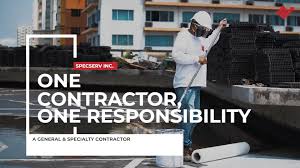
A master electrician can be described as a professional in electrical engineering. Their task is to implement lighting design concepts that have been created by lighting engineers. They are responsible to connect, hang, and prepare stage lighting fixtures. They are also responsible for the proper focus of stage lights. A master electrician must be skilled in a variety of electrical methods.
The job duties of a master electrician
A master electrician's job responsibilities include installing and maintaining electrical systems and following safety regulations. They oversee the installation of lighting, circuit breakers, and other devices that make up electrical systems. They may also manage the maintenance of emergency equipment and assist with new computer installations.
A master electrician must possess a master electrician's license in Delaware or another state, or meet equivalent requirements. An essential prerequisite for master electricians is the ability to interpret and read schematics. A valid driver's licence is also required for master electricians.

You need to have the required education to become an electrician master.
Master electricians specialize in installing and repairing electrical wiring. These professionals often run their own businesses, or they work for large construction companies. They are skilled at solving difficult problems and coordinating the work flow for large jobs. They are sometimes also qualified to train and supervise others. They are required to follow all safety regulations and adhere to electrical codes. They must also possess strong communication skills.
To become a master electrician, you will need to complete an apprenticeship, a formal education, or practical training. Apprenticeships last typically for five to six year. Apprenticeships are very focused and do not often include any general education courses.
Salary of master electrician
Master electrician is a career that you may be interested in. The average salary for this job is $78,400 per annum. The highest paying master electricians earn more than this, though, and can command up to $103,000 a year. This salary is nearly twice that of a master electrician. In addition to higher pay, master electricians can also expect to have a wide variety of tasks.
The salary of a master-electronics contractor varies depending on the location, education, experience, and other factors. Large cities generally have a higher master electrician salary. But, living expenses in these areas are more expensive.

Master electricians: Career advancement
As electricians become more knowledgeable about electrical equipment and electrical systems, there is a wide range of career options. Some electricians specialize in one area, such as commercial and industrial electrical wiring. However, electricians must never lose sight of the importance and value of continuing education. For example, NECA Education & Careers offers courses on energy efficiency, renewables, working at heights, and dealing with asbestos.
Master electricians are paid a variety depending on the level of their education and previous experience. They may also earn extra compensation for overtime work. Average growth in the employment of master electricians is predicted over the next decade. This growth is due in part to the growing demand for electricity both in new buildings and in existing homes. However, rising automation will reduce the need for some types of electrical work.
FAQ
Where can I find more information about building permits?
Contact your local government agency (e.g., NSW Local Government Association) for more information. They should be able to advise you about what steps you need to take to obtain permission to build.
What is a service contract agreement?
An agreement between two parties for the provision of services is called a Service Contract Agreement (SCA). The SCA describes the services that are being offered, how they should be performed, who is responsible for their payment, and when they should begin. The agreement also specifies what happens to the other party if they breach their obligations.
Is There Any Way That I Can Prepare For Negotiation Beforehand?
Yes!
There are many ways to prepare yourself for negotiations.
One way to do this is to put down the terms & conditions of the agreement
Statistics
- Don't take their anger personally, they are mad about the situation 99% of the time. (activatemylicense.com)
- (v) Place or places of performance of the prime contract and first-tier subcontracts estimated at $10 million or more, if known. (acquisition.gov)
- (1) Except as provided in paragraphs (a)(4) and (a)(8) of this section, if the estimated amount of the contract or subcontract is $10 million or more, the contracting officer shall request clearance from the appropriate OFCCP regional office before- (acquisition.gov)
- Depending on the client's trustworthiness and financial stability, a deposit is usually 10 to 50% of the total contract amount. (lawdepot.com)
- While we offer all our high-quality services at competitive prices, we know that many who need our services are on fixed incomes, so we offer a 10 percent discount for seniors and military members. (homeservicecontractorsinc.com)
External Links
How To
What should a service agreement include?
Every business relationship should have a Service Agreement (SA). It sets out what you expect from one another and how you intend to achieve these expectations. The SA also describes when and how you expect the other side to meet its contractual obligations.
The following are key elements for a successful SA
-
Both parties will agree to the scope of work.
-
Payment terms details, including start date and expiration dates for goods/services.
-
A price agreed upon for the project.
-
Additional costs, such as VAT, etc.
-
Whether there are other topics that require discussion.
-
Who will be held responsible for any problems that may arise on the job?
-
How to resolve disputes
-
What happens to a contract breached by one party?
-
What happens in the case of a dispute?
-
When does the contract come into effect?
-
What happens if a party doesn't perform.
-
How long do you have to pay invoices?
-
Who pays for expenses such as travel?
-
Where the money comes from.
-
What happens if the client changes his mind about the project?
-
What happens to the supplier if they don't show up.
-
Who has access during construction to the site?
-
What happens if the customer cancels?
-
What happens when the product is defective?
-
What happens if the supplier refuses to sell parts?
-
What happens if equipment fails?
-
What happens when the project takes longer to complete?
-
What happens if the work isn’t completed within the stipulated time?
-
What happens when the project's quality falls below what you expected?
-
What happens if costs exceed expectations?
-
What happens when the materials are not delivered in time?
-
What happens if the material arrives damaged.
-
What happens if the products are not up to standard.
-
What happens if you cancel the job before it is complete?
-
What happens when the company goes under?